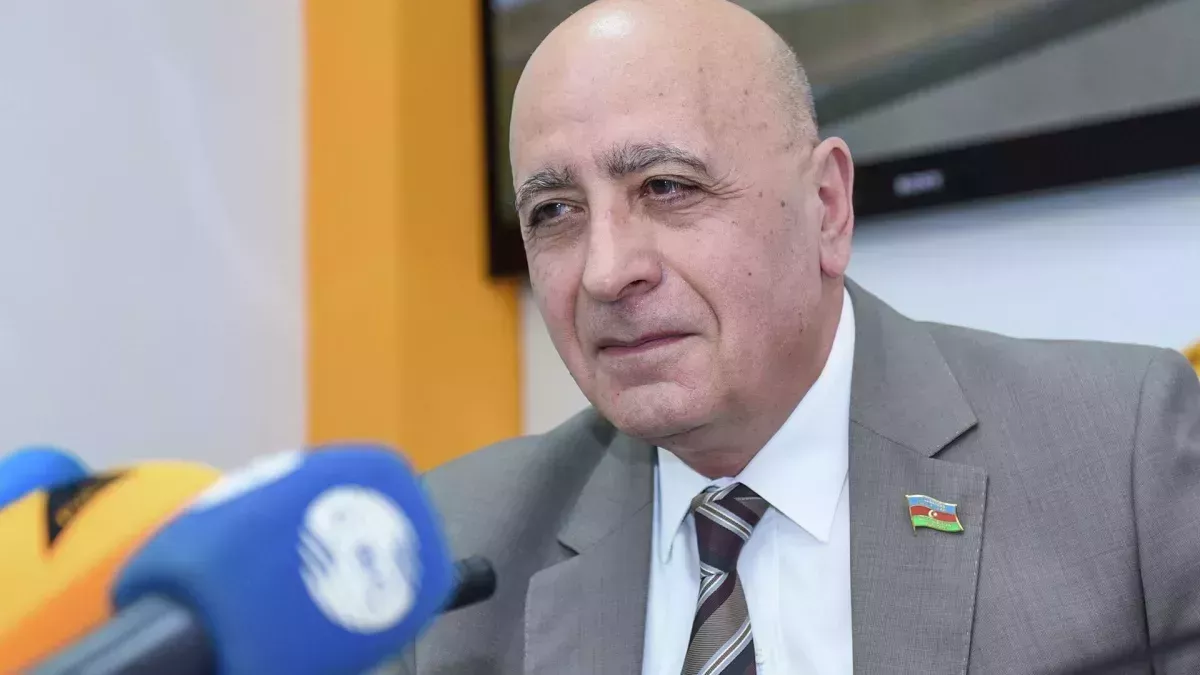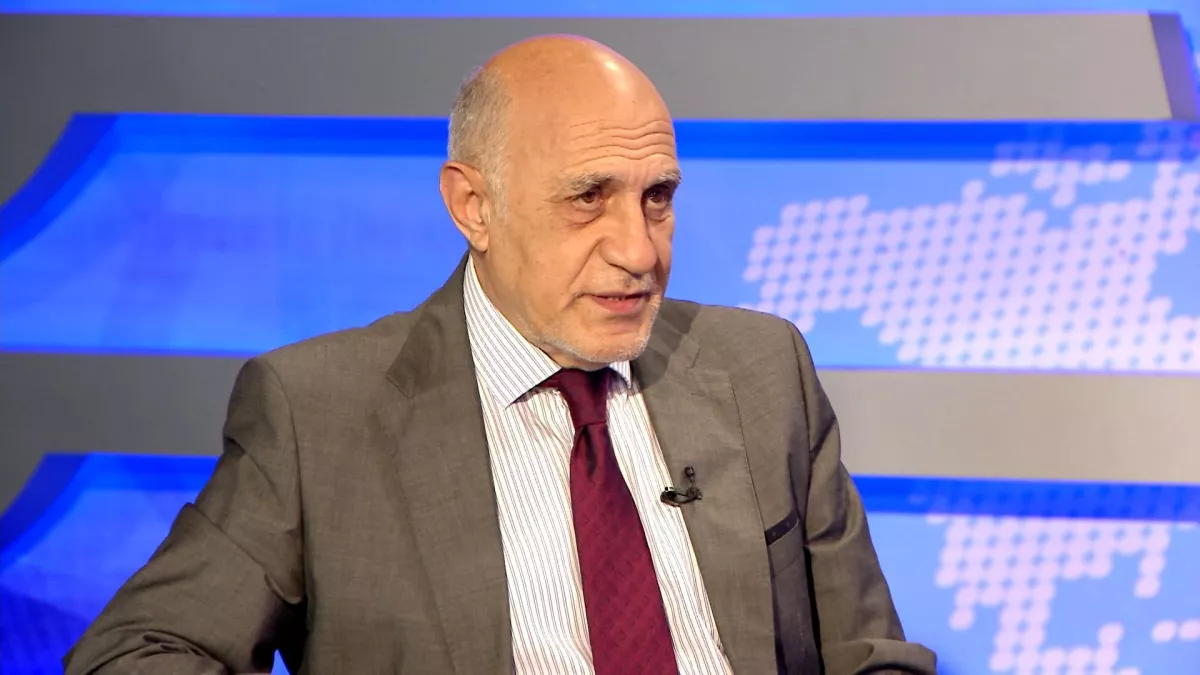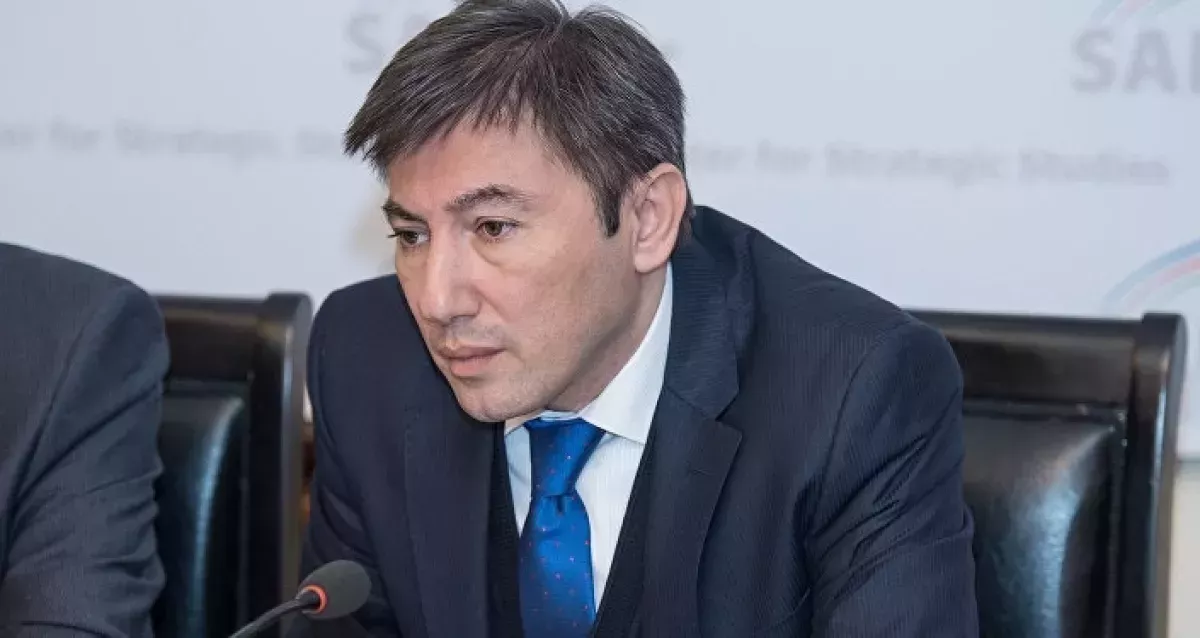Crisis on the Azerbaijani-Russian track: Baku’s position remains firm and justified Expert insights
In an interview with Al Arabiya, Azerbaijani President Ilham Aliyev addressed several essential topics, including the recent escalation in Azerbaijani-Russian relations. The head of state made it clear that Azerbaijan is not the initiator of the current crisis between the two countries, discussed the causes of the situation, and explicitly outlined the steps his country expects from Russia to ease tensions along the Baku–Moscow track.
The statements by the Azerbaijani president have already generated a strong reaction in the Russian media space, where Aliyev’s interview was interpreted through their own lens, particularly regarding the part about the Azerbaijani civilian airliner shot down by Russian air defences.
Why did Russia react so nervously to Azerbaijan’s messages? Caliber.Az turned to prominent Azerbaijani political experts for insight.

Azerbaijani Parliament member and political analyst Rasim Musabayov noted that President Ilham Aliyev, in his interview, addressed very fundamental issues concerning the tension in Azerbaijani-Russian relations.
“The president’s responses make it clear that despite a recent thaw in bilateral relations, Azerbaijan’s fundamental position has not changed. The Azerbaijani side insists that Russia must take responsibility for the civilian aircraft shot down over Grozny, ensure a proper investigation, hold those responsible accountable, and provide compensation. This principled stance of Baku remains unchanged and is non-negotiable.
President Ilham Aliyev cited the example of a Russian military helicopter that approached Azerbaijan’s borders during military operations with Armenia. Although that incident occurred without prior warning from the Russian military, Azerbaijan held the responsible parties accountable and paid compensation to Russia. What prevents the Russian Federation from doing the same? Imperial arrogance? This is unacceptable for Azerbaijan,” the MP said.
He also emphasised that Russian propagandists can say whatever they want, but Azerbaijan’s position on this issue remains unchanged, and that is very important.
“The second point in our president’s interview concerned the opening of the Zangazur corridor. Here, Ilham Aliyev outlined the historical background, recalling that at one time Azerbaijan was artificially divided into two parts. Although Zangazur was predominantly populated by Azerbaijanis, it was separated from the Azerbaijani Republic and handed over to Armenia to create a wedge aimed at obstructing unified transport connections within the Turkic world.
In this context, the president emphasised that Azerbaijan and Armenia, by signing the declaration in Washington, committed to respecting territorial integrity and the inviolability of borders. He stressed that the project should be implemented with the participation of American companies and under certain auspices from Washington, as it is equally in the interest of Azerbaijan, Armenia, and many countries for which the Middle Corridor represents a key transport artery. I believe this message from the Azerbaijani leader was also directed at Russia,” Rasim Musabayov concluded.

Meanwhile, Fikrat Sadikhov, professor at the Baku-based Western Caspian University, diplomat, and political analyst, emphasised that in his interview with Al Arabiya, President Ilham Aliyev clearly explained the reasons behind the tensions between Baku and Moscow.
“Clear emphasis was placed on each of the incidents that led to the deterioration of relations. This includes the downing of the AZAL civilian aircraft, the fact that compensation has not been paid, apologies have not been made, and no investigation has been conducted against those responsible for this crime. Naturally, this situation cannot but cause tension between the two states. Then, as is known, persecution of the Azerbaijani diaspora began in Yekaterinburg. During the arrests, two Azerbaijanis allegedly died of heart attacks, while others suffered physical injuries,” the political analyst said.
Touching on the fact that the president of Azerbaijan’s interview has been interpreted in its own way by the Russian media, despite clearly presenting Azerbaijan’s position, Sadikhov noted that such distortions are completely unacceptable.
“I believe that there are clearly factors provoking the stirring of hostility in Russia, even though this does not contribute to the further development of Russian-Azerbaijani relations. Azerbaijan is acting very carefully and responsibly in the current situation, and blaming our country is highly unconstructive. Some Russian experts even go so far as to make hostile remarks against Azerbaijan in their commentary. Therefore, in my view, it is quite difficult to speak of any rapprochement between Russia and Azerbaijan in the foreseeable future,” Sadikhov concluded.

According to an Azerbaijani expert and head of the “South Caucasus” Political Analysts Club, Ilgar Valizada, in his interview with Al Arabiya, President Ilham Aliyev once again reaffirmed the points he has made previously, emphasising that Azerbaijan’s position is based on concrete facts and remains unchanged.
He emphasised that within the Russian expert and media community, the situation is further fueled by individuals who, throughout their political or journalistic careers, have consistently taken an openly anti-Azerbaijani stance.
“It is quite clear that for them, this is simply an opportunity to ingratiate themselves and once again reveal their true nature. Over the years of the Armenian-Azerbaijani conflict, the vast majority of those who now speak negatively about Baku’s actions have consistently taken pro-Armenian positions, justifying separatism and the aggressive actions of the Armenian military. Therefore, it is not surprising that today they have joined the chorus of voices accusing Azerbaijan of allegedly wanting to worsen relations with Russia and of acting under the direction of some external forces.
On the other hand, completely inadequate assessments of Azerbaijan, combined with the fabrications they spread, act as an additional trigger for the deterioration of relations between the two countries. These individuals, who have no real involvement in politics or in implementing projects on the ground and operate mainly in the media space, do everything to harm Russia’s interests both in the region and in its relations with Azerbaijan, including economic interests. It is clear that these individuals are being manipulated by certain influential political circles in Russia, and the main questions should be directed at these puppeteers.
I would also like to point out that in 2020, when Azerbaijan accidentally shot down a Russian helicopter, our country compensated the families of the deceased and offered apologies at the highest level. This was despite the fact that the military aircraft had violated Azerbaijani airspace by conducting a provocative flight during the actual conflict between Azerbaijan and Armenia. What, then, has Russia done in response to the tragedy involving the Azerbaijani airliner? Clearly, Azerbaijan is acting fully within its authority,” Valizada stated.








